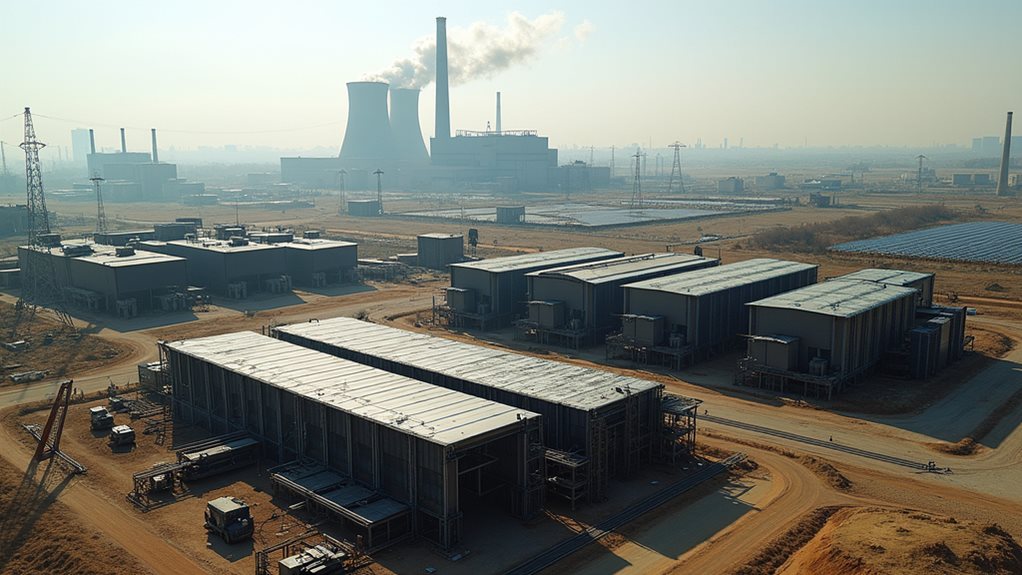Pakistan just allocated 2,000 megawatts of electricity for Bitcoin mining while simultaneously securing a $2.4 billion IMF bailout—and the timing couldn’t be more awkward. The IMF is now demanding clarification on this power allocation, worried about potential electricity shortages and fiscal risks that could derail economic stability. Pakistan’s betting big on transforming surplus electricity into cryptocurrency revenue through repurposed coal plants, but international lenders aren’t buying the digital transformation pitch without serious answers about long-term sustainability and economic implications.

While most countries are still figuring out what to do with Bitcoin, Pakistan just decided to go all in. The nation announced plans to allocate 2,000 megawatts of electricity for Bitcoin mining and AI data centers. That’s enough power to run a small city, but apparently mining crypto seemed like a better idea. Market volatility trends suggest this could be a risky investment given cryptocurrency’s unstable nature in recent years.
Pakistan’s strategy sounds ambitious on paper. They want to transform into a digital innovation leader, attract billions in foreign investment, and create high-tech jobs. The government is even offering tax holidays and customs duty exemptions to sweeten the deal for international miners. Three underutilized coal power plants will be repurposed specifically for Bitcoin operations.
The timing is interesting, considering Pakistan’s economic situation. The country is positioning itself as a strategic hub connecting Asia, Europe, and the Middle East. With advanced subsea cable connectivity and surplus power generation capacity, Pakistan believes it can compete on energy costs while diversifying its economy through digital assets. Pakistan has also established the Pakistan Crypto Council with former Binance CEO Changpeng Zhao as strategic advisor to regulate and boost crypto adoption. The initiative aims to convert surplus electricity into cryptocurrency revenue rather than letting energy capacity remain idle.
But here’s where things get complicated. The International Monetary Fund just sanctioned a $2.4 billion loan for Pakistan, and now they want urgent clarification about this power allocation plan. The IMF isn’t exactly thrilled about potential electricity shortages and fiscal risks that could impact tariffs and distribution.
The fund emphasizes consultation requirements under Pakistan’s Extended Fund Facility agreement. Translation: you can’t just decide to power Bitcoin mines without running it by your lenders first. The economic implications are being closely monitored, which is diplomatic speak for “we’re watching you.”
Global Bitcoin miners and data infrastructure companies have already expressed interest in investing. Pakistan’s geographic advantage and digitally engaged population make it attractive for Web3 and AI development. The country genuinely offers competitive energy costs compared to regional alternatives.
However, the IMF’s concerns highlight a fundamental tension. Pakistan needs foreign investment and economic diversification, but it also needs to maintain fiscal stability under international oversight. The success of this Bitcoin mining initiative depends on whether Pakistan can satisfy both its ambitious digital transformation goals and the IMF’s requirements for responsible economic management.









